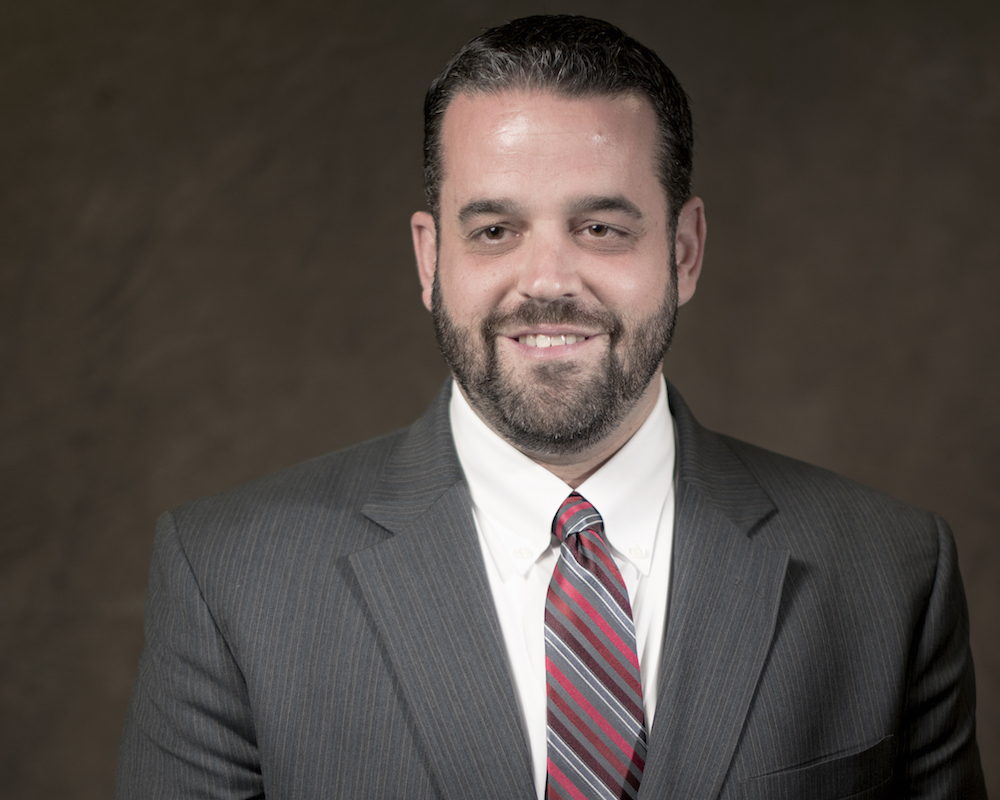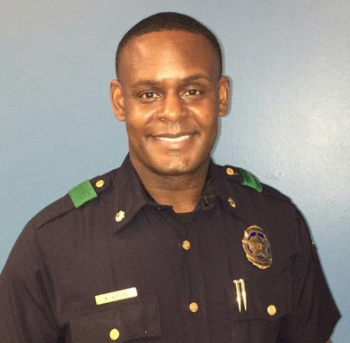And other efforts to improve the Forest Audelia area’s crime problems, which were discussed at a meeting Thursday.
Councilman Adam McGough, City of Dallas code enforcement and Dallas Police leaders spoke to a Forest Lane Academy cafeteria full of 50 or so residents of the Forest Audelia area regarding drug dealing and violence nearby.
Of specific focus is the EZ Trip #9 convenience store, located at the southwest corner of Forest-Audelia, which city attorney Kristen Kramer says is at the center of a TABC protest that her department recently initiated. The protest is a multi-step process that, based on TABC code, can prevent the renewal of a license to sell alcohol. The next steps would be a public hearing date, at which affected residents would need to show up and speak about their experiences.
No shortage of that. People at Thursday’s meeting — who hailed from Woodbridge, Chimney Hill, Town Creek, Creekside, Country Forest and area apartments, to name a few — say they have witnessed drug deals, shootings, fights, stabbings, prostitution solicitation and all manner of mayhem there.
The inability to sell alcohol would not stop the illegalities, everyone acknowledged, but it might motivate the owner to take further measures to stop loitering that nurtures the dealing and violence, Kramer says.
The community prosecutors also are pursuing a nuisance abatement lawsuit.
During a shooting a couple weeks ago we spoke with two store employees, who told us they just remain at their bullet-proof-glass encased register during shifts. (We have not yet reached the property owner, but we will keep trying.) One officer told the group tonight that the owner has been given many chances to make improvements; he has checked to see if 911 calls have come in from the store to report drug deals or illegal behavior — they don’t, he says. The owner has hired part time security guards at night, but neighbors say loitering is even worse during the daytime. The most recent shootout happened at 3 p.m.
The city attorneys’ actions are small pieces of an entire toolbox of items northeast leaders are throwing at crime issues at the intersection as well as the surrounding area. (Many, such as the boxing gym project and ALL IN D10 district accountability plan are positive, progressive efforts).
Adam McGough, pointing out former Lake Highlands AIA president Steve Wakefield in the crowd, recalls Operation Kitchen Sink, in which former police chief David Brown (then, in the early 2000s, commander of the northeast) along with Wakefield, councilmen Bill Blaydes and his predecessor Jerry Allen and other Lake Highlands activists collaborated to throw everything they had at the crime problems.
“There is nothing we won’t try, at least that is under the law,” McGough says. He mentions the push to form a north Lake Highlands Public Improvement District, lauding the ways a PID has helped central Lake Highlands.
Police, including narcotics officers, are focused on the area, though they have much ground to cover around the whole of Dallas. If you can clearly identify a person making a drug deal — you see their car, plates, clothing, for example, and can relay this information to an officer — the lieutenant who oversees narcotics invites you to call his division directly at 214.671.3120. (If you are in danger, of course, call 911).
The new interim commander of the northeast subdivision Maj. Avery Moore says, “I am very aggressive in fighting crime, but I am also holistic.” He also praised councilor McGough’s dedication to making a difference as well as the determination of all those speaking at the meeting to “get the job done.”
Still several people including former LHAIA president Wakefield express major concern. Seventeen years fighting hard has made him skeptical that enough change will ever happen, he told the group and the panel.
A mother with a small child said she’d just moved in, had learned a hard lesson about stopping at the Forest Audelia gas station when someone approached her. “Now I avoid it,” she says.
The majority of the room raised their hands when McGough asked how many commuters have changed their routes in order to avoid the Forest Audelia intersection.
That’s something he’s not OK with, he insists. It makes him angry. He’s asking for more resources at City Hall, he says, but he is competing with South Dallas and West Dallas (areas that face serious crime problems too). The council needs to hear your voices too, he tells the group.
Forest Lane Academy Principal Lariza Vasquez Liner, whose school serves, almost exclusively, children from low-income apartment communities, took a moment during the Q&As to speak up: If we want to contribute to the younger generation growing up in this environment, her school could use mentors, she says. “This is the first year we have a parent on the PTA,” she says. “It consists of two parents and the rest are teachers who volunteer their time.”
Police representatives noted that Forest Audelia, just last year number two on the high crime areas of Dallas, has been off the top five list for several months.
McGough says he didn’t want to even bring that up, because stats don’t matter when you are witnessing violence and hearing gunshots in your backyard.
(Indeed, though you should take a look at our STATS feature in the February issue.)








